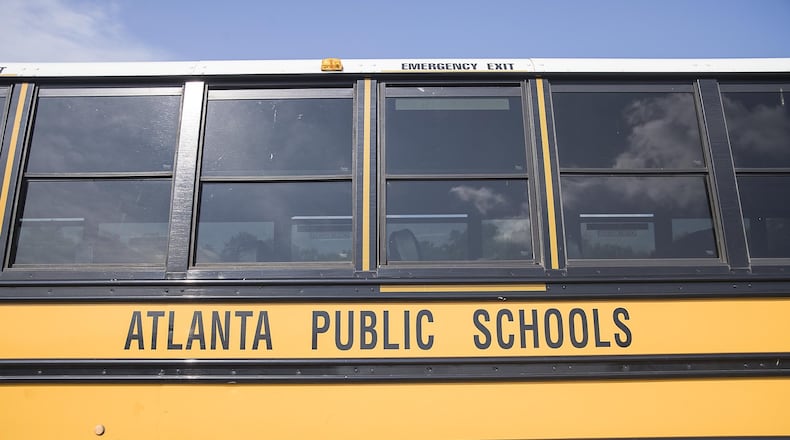Some Atlanta students returned to classrooms this week for in-person tutoring, small-group sessions and social services.
It’s the first time since March that Atlanta Public Schools’ students have received face-to-face academic support, though hours are limited and the effort is restricted to students with the highest needs.
The ramped-up interventions do not replace regular classes, which remain only online. But the move acknowledges that some students are falling behind in an all-virtual format.
Unlike many metro Atlanta districts, APS has not reopened school buildings since the pandemic prompted a spring shutdown. Despite pleas from some parents, Atlanta officials have said it’s not safe and that the soonest students could potentially return is January.
Because of that extended time away, the district added in-person intervention to expand efforts that have been happening virtually.
“Most of our students have lost invaluable learning time since March, placing them at a greater risk of not being prepared for college, career, and life,” Superintendent Lisa Herring wrote in a recent blog post.
A parent group pushing for schools to reopen said the move recognizes the importance of in-person learning, but they want the district to give students the option to come back full-time.
“It’s a first step in the process of returning students to face-to-face learning, but we’re eagerly awaiting a plan for returning in January in a safe manner for all students that choose it,” said David Hayes, chairman of the Committee for APS Progress.
The district required each school to offer up to two days a week of in-person services beginning this week. Some are tutoring struggling students or holding small-group sessions to boost reading skills. Counselors and therapists are meeting with students to discuss mental health and social and emotional issues.
Officials said they don’t know how many students will be in buildings each day, or for how long, because each school designed their own programs and schedules. Only a quarter of a school’s students can be present at any given time. Masks and temperature screenings are required.
School leaders will review grades, attendance records and wellness needs to determine if a student should come in for extra help. Among those eligible: Some special education students, children failing two or more courses and those with poor online attendance.
Katika Lovett, assistant superintendent of student services, said some students need an opportunity to meet with teachers in person and not just online.
“That continued time away from the physical interaction was just taking a tremendous toll,” she said.
Shannon Schlottmann plans to send her son to a kindergarten intervention program at Morris Brandon Elementary School. He’ll attend three hours over two days in the building during a five-week period.
Schlottman said the program takes place in the afternoon, when he would normally be doing online science, social studies and special classes.
She called her son’s teachers “fantastic,” and she thinks the program will be worthwhile. But, in an email to the Atlanta Journal-Constitution, she said it’s too little, too late.
“...(T)he limited in-person time APS is allowing for this intervention program seems like a check-the-box measure that will not make up for the large loss of learning suffered by students in our district,” Schlottmann said.
About the Author
Keep Reading
The Latest
Featured



